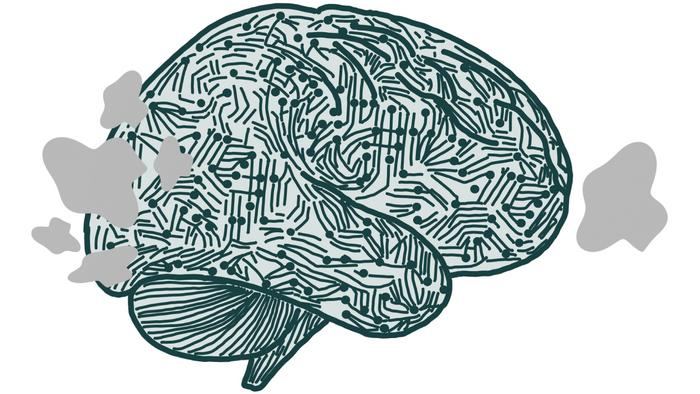Tau proteins are normally responsible for maintaining the structure of neurons, but in Alzheimer’s patients, these proteins become defective and accumulate into tangles that disrupt brain function
A groundbreaking new study has revealed that fathers may hold a surprising genetic clue to an individual’s risk of developing Alzheimer’s disease. Long believed to be more closely linked to maternal inheritance, the neurodegenerative condition is now being examined through a paternal lens, offering new insight into how Alzheimer’s may develop and progress in the brain.
Conducted by researchers at McGill University in Canada, the study examined 243 individuals with a family history of Alzheimer’s disease, all of whom were cognitively healthy and had an average age of 68. To the researchers’ surprise, it was those whose fathers had Alzheimer’s who showed a greater spread of tau protein in the brain — a key biomarker and known warning sign of the disease.
Dr. Sylvia Villeneuve, lead author of the study, said the team initially expected maternal links to be more prominent.
“We were surprised to see that people with a father with Alzheimer’s were more vulnerable to the spread of tau in the brain, as we had hypothesised that we would see more brain changes in people with affected mothers,” she told Universe Today.
Tau proteins are normally responsible for maintaining the structure of neurons, but in Alzheimer’s patients, these proteins become defective and accumulate into tangles that disrupt brain function. This process is central to the cognitive decline observed in patients.
The finding shifts the current scientific narrative, which has historically focused more on maternal inheritance of Alzheimer’s risk, particularly because women are statistically more likely to be diagnosed with the disease. The discovery could influence how researchers assess genetic risk and develop targeted prevention strategies in the future.
Dr. Villeneuve and her team believe that more research is needed to determine why the paternal link shows a stronger correlation with tau spread, and whether specific genetic markers inherited from the father may play a role. In the meantime, the study calls for a more inclusive approach when evaluating familial risk — involving both sides of the family history.
Vitamin B12 Debate: Experts Clarify Cyanocobalamin Safety
In a separate but equally health-focused development, Indian medical experts have moved to dispel myths surrounding the safety of cyanocobalamin, a synthetic form of Vitamin B12, amid a wave of social media misinformation.
A recent viral post on platforms like X and Instagram claimed that cyanocobalamin was toxic to humans due to its inclusion of a cyanide molecule, prompting concerns over the widespread use of B12 supplements in India. However, leading health professionals have strongly rebutted these claims, emphasizing that cyanocobalamin is both safe and essential for human health when taken in recommended doses.
“Cyanocobalamin is a stable synthetic precursor of Vitamin B12. The amount of cyanide released during its metabolism is so small that it poses no threat and is safely excreted by the body,” explained Dr. Rajeev Jayadevan, Chairman of the Scientific Committee at IMA Cochin, told.
Dr. Jayadevan also pointed out that trace amounts of cyanide naturally exist in common foods such as tapioca, flaxseed, and apples — none of which are harmful when consumed in typical quantities.
Vitamin B12, or cobalamin, plays a crucial role in DNA production, red blood cell formation, and maintaining healthy skin, hair, and nails. More importantly, B12 supports neurological function, and its deficiency has been linked to a host of disorders.
“B12 deficiency is a major reason for brain disease, brain fog, dementia, neuropathy, nerve weakness, forgetfulness, and joint pain,” said Dr. M Wali, Senior Consultant at a city-based hospital. “Its lack can even result in paralysis and other serious health conditions.”
For those unable to obtain sufficient B12 from diet alone — especially vegetarians and older adults — supplements are an effective solution. While methylcobalamin, a naturally occurring form, is also available, experts maintain that cyanocobalamin remains a safe, effective, and widely used option.
As misinformation continues to spread online, health authorities are urging the public to consult medical professionals before making changes to supplement intake, especially for essential vitamins like B12 that support cognitive and physical health.
Together, these two studies underscore the importance of family health history and responsible supplementation in managing risks related to neurological disorders and overall well-being.









